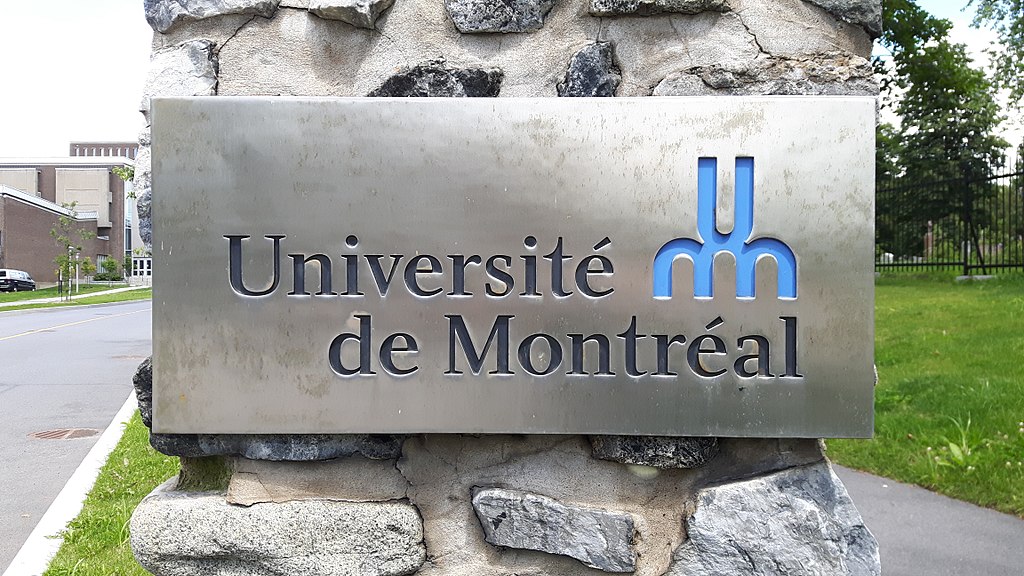Pursuing one’s studies in pandemic times can rattle even the best and brightest students. For those from developing countries, including many from francophone Africa who have chosen to study in Quebec, it has deepened structural inequalities in access to funding and immigration permits. Living away from family and missing a supportive community can make the isolation caused by Quebec’s confinement even harder to bear.
For one student from Central Africa at one of Montreal’s major universities, “being away from one’s loved ones, living alone or with roommates one rarely interacts with, it’s been very difficult.”
She and her colleagues had initially hoped that — what with the curfews and fewer distractions — they could focus on their studies. But the absence of meaningful social interaction and the lack of access to resources on campus have resulted in a loss of motivation.
“I was lucky to already be at the stage where I could focus on completing my thesis. That isn’t the case for others.”
Aya, who spoke to NCM on condition of anonymity, is an international student invested in her community and aware of the struggles of other international students at her university. Acting as a liaison between them and the university, she communicates problems and helps students out with their paperwork.
But Aya has had her own share of problems.
Dealing with financial pressures
“The university could have been a bit more understanding in light of the financial crisis that has come with the pandemic; instead it has raised fees,” says Aya.
Working part time is not enough to cover those fees, which go up to nearly $30,000 dollars a year. A master’s student, Aya has found it challenging to access scholarships or tuition fee reductions. “African students like me are not favoured for fee reductions,” she says.
Aya was raised in Côte d’Ivoire. In Quebec, students from francophone African countries often pay up to five times more than their counterparts from France and Belgium, who benefit from treaties with the provincial government that bring their fees down to the domestic student rate. While all francophone European students are exempt from higher fees, there are fixed quotas for students from developing countries like Algeria or the Congo.
No major university in Quebec has reduced fees over the course of the pandemic despite the transition to distance learning and some students not being able to enter Canada.
Nor do most international students — with the exception of French and other European citizens — have access to Québec’s public health-care system. They are required to purchase private insurance that can cost over a thousand dollars per year. In some universities, those unable to enter Canada have been offered the possibility to cancel or defer paying private insurance.
Tuition and health insurance fees rise each year. Living independently in a foreign country where the cost of living can be much higher than back home, international students can struggle to get by, adds Aya. On top of tuition, there’s rent, groceries, health expenses… She has had to rely on her family for help. Amid the pandemic, that hasn’t been easy, she says, while emphasizing that her own experience may not be one that others share.
“Back home, my parents had so many other problems to worry about than sending me cheques,” she says, pointing to economic problems and fears of political instability in her country. In many African states, 2020-2021 has also been an election year.
She and her friends from Côte d’Ivoire and Senegal have been worrying constantly about their families, hoping that the situation remains stable.
The pandemic has aggravated “the economic and political crises in the countries where international students come from,” Aya stresses. “We follow closely what goes on back home… It weighs on the mind.”
Sharpening inequalities
Over the past year, border closures and delays over the granting and renewal of study permits have been a major issue for many international students at the Université de Montréal, says Quentin de Dorlodot, the political attaché of the student workers’ union Syndicat des étudiant.es salarié.es de l’Université de Montréal.
Last fall, those who were still stuck in their countries of origin were also having trouble applying for a social insurance number, which is needed to be able to work on campus or part-time elsewhere — for many, a vital source of income to pay off tuition and living expenses. This amounted to a bureaucratic nightmare for many international students, adds de Dorlodot.
The university would decide to hire them on campus as temporary workers to tide them over in the interim — but without union protection or the same benefits accorded to other working students.
“International students, who are already charged higher fees, were earning less than domestic students in the context of the pandemic,” says de Dorlodot. “This put many in a precarious position.”
Following pressure from the student union, the Université de Montréal would eventually agree to granting them equal protection under the union’s collective bargaining agreement.
However, such problems have existed long before the pandemic, continues de Dorlodot. For international students, the pandemic has only accentuated inequalities in access to financial support, health services, and immigration papers — especially for those from developing countries.
Dieudonné Ella Oyono, an economist at the Université du Québec à Montréal, agrees that the pandemic risks exacerbating certain inequalities. In refusing to reduce international fees during the pandemic, universities may have anticipated an earlier return to normal than has turned out to be the case. But they now ought to revisit what they charge international students, certainly for those who aren’t physically in Canada but who still pay the same fees.
Oyono is from Gabon and was once an international student himself. He says Quebec should better target the beneficiaries of scholarships and fee discounts, prioritizing students from developing countries who are in real financial need.
“Before the pandemic, coming to study in Canada was already reserved for people with the financial means. At the moment, it’s those with the most means to study here who benefit the most from these scholarships and tuition reductions. It’s totally unacceptable!”
Editor’s note: This story has been revised to further protect the identity of our source.
Having worked for a couple of years in the non-profit sector in Manila,
Christopher has written about aid and international development, human rights, immigration and armed conflict in diverse contexts. He is a member of the NCM-CAJ Collective and works as a freelance journalist.





